GCSO funded projects
Each project shall fulfill GCSO’s mission: implement and scale solutions to sustainability challenges.
GCSO-funded projects are mandated to create far-reaching, on-the-ground impact, and must exhibit the following key features:
- Collaboration: two or more GCSO member institutions must participate in one or more projects;
- Outcomes-focused: existing solutions must be implemented in a new location, sector, or social context (‘scaled’); and,
- Non-academic participation: ‘implementers’, e.g., governments, industry, schools, non-profits, etc., must be integrated into the project from the beginning.
2019
The Audacious Partnerships Program: Foregrounding Partnership Development in the Generation of Sustainability Solutions
Making cities more sustainable requires more than upgrading roads, bridges, and water and energy systems. Cities need to create enduring social infrastructure, which include the knowledge, skills, attitudes and networks of city administrators, local businesses, non-profits, and residents. City university partnerships are one way that cities can help address physical and social infrastructure challenges in service of sustainability goals. CapaCities 3.0 focuses on the partnerships established between cities and universities with the goal of improving solutions by improving collaborations.
Sustainable Kitchens: A Certification Programme
The last decade saw considerable growth in the food service sector with the global rise of “eating out” and emergence of food delivery apps. Projected growth in this sector will intensify resource use and environmental impact in terms of energy, water, solid waste, and air pollution. This project aims to develop a programme based on the Food Waste-Energy-Water-Emissions (FEWE) nexus to systematically evaluate and drive sustainability practices in commercial kitchens.
Sharing Learning to Implement an Open and Collaborative Seed Innovation System
Today, three agro-chemical companies dominate commercial plant breeding and global seed markets, an outcome of the emergence of new genomics-based technologies and the worldwide diffusion of strict intellectual property rights, especially patents and patent-like restrictions, over seed material. This GCSO-funded project will utilize a set of technical and legal tools, based on open source principles, to support collaborative seed breeding and Mexico’s agrodiversity.
Educating Those Most At-Risk and Hardest to Reach: Actionable Sustainability Education Across the Pacific with SolarSPELL Offline Digital Libraries
Dissemination of an Efficacious Youth Prevention Program in Mexico: Scalability and Sustainability
The need for more effective and sustainable prevention efforts in Mexico is increasingly urgent. Sharp increases in substance use rates among Mexican youth are a major concern, particularly along the US- Mexico border, where many are experiencing a disproportionate burden of violence, substance abuse, and pervasive poverty. Keepin ‘it REAL (kiR) is a school-based multicultural substance use prevention program for students between 12 and 14 years of age and is designed to help students assess the risks associated with substance abuse, improve their decision-making process and resistance strategies, improve anti-drug beliefs and regulatory attitudes, and reduce substance use.
Protecting the Thread of Life: Enhancing watershed health for communities, coffee agroforestry, andconservation
Colombia is the world’s second largest producer of Arabica coffee, with more than 20,000 hectares devoted to coffee production in the Magdalena department alone. Current coffee production practices impact nearby watersheds, on which millions of Columbians and 46 species of endemic amphibians rely. This GCSO-funded project will promote the increased adoption of sustainable coffee cultivation practices through water quality and amphibian monitoring activities to support increased adoptions of water filtration systems and reduced agrochemical use.
2018
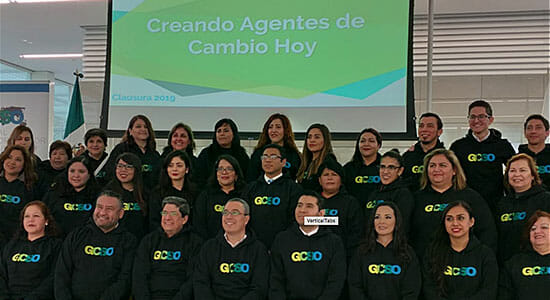
Developing a Scalable Sustainability Education Model Through Refinement, Expansion, and Iterative Assessment
In year one (2017), K-12 teachers in Ireland, Germany, Mexico, and the United States participated in Continuing Professional Development (CPD) focused on increasing teachers’ competence and confidence in teaching about sustainability, taking into consideration impacts on students’ learning outcomes. In year two (2018), this project will scale the K-12 CPD model, broadening its reach to a new cohort of teachers and students. Through a novel evaluation process, the team will explore the impact of sustainability CPD on the pupils of the participating teachers.
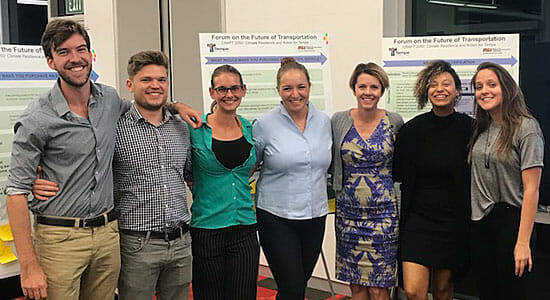
CapaCity: Building Capacity for Climate Resilience and Sustainability in Cities
In year one (2017), CapaCities built sustainability implementation capacity in city staff and leadership through trainings held in four cities across three countries. In year two (2018), CapaCities will build on year one outcomes to develop higher level capacity, with a specific focus on climate resilience. Each of four participating cities (Tempe, Mexico City, Lüneburg, Karlsruhe) will be evaluated on its existing planning process or goal related to climate change, sustainability, or resilience.

Language for Sustainability: Sustaining Biodiversity and Biocultures through Indigenous Language and Participatory Science
Over 90% of our global cultural diversity and 80% of our biodiversity is estimated to be represented and inhabited by 300+ million Indigenous Peoples and local communities comprised of 5,000 ethnic groups. However, while Indigenous Peoples have historically been effective ecological stewards of their lands, development pressure and limited access to the global economy have raised concerns about over-exploitation of their environment. This GCSO-funded project will implement and scale a solution that synergizes biodiversity conservation and biocultural revival.
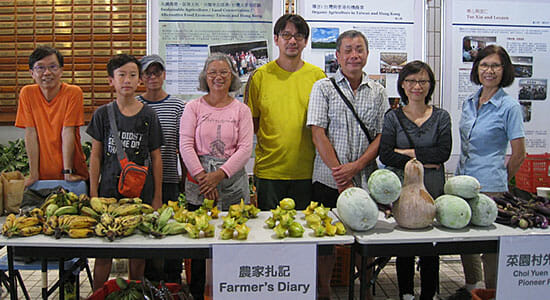
Transferring and Scaling Sustainable Local Food Economy Options
The current industrial food system, including its large-scale agribusinesses, food-processing companies, and retailers, is in urgent need of a transformation towards sustainability. This project will build capacity in food entrepreneurs and stakeholders to create, manage, and support sustainable local food enterprises in four regions across three countries. In this project, enterprise plans will be developed for land trusts, urban agriculture cooperatives, plant-based protein small-to-medium, and mill-bakery cooperatives.
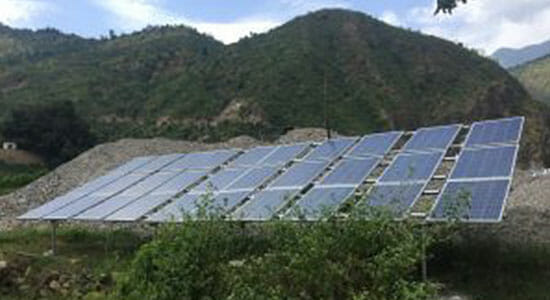
Implementing Off-Grid Renewable Energy to Create Social Value and Community Development
The green energy revolution is an opportunity to design energy solutions that provide significant additional benefits to communities worldwide. The challenge is to design projects that enable households and businesses to use clean energy to advance a number of sustainable development goals, from improved health, education, economic development, food security, and wellbeing to reduced inequality, pollution, and corruption. With the support of GCSO, research teams will collaborate with companies and non-profits around the globe—including Nepal, the Philippines, Uganda, and Bolivia—to upgrade their capacity to design green energy initiatives with outsized social impact.

Facilitating Evidence-based Decision-making in Global Sustainability
Sustainability impacts related to global health can be difficult to measure. This project introduces a methodology and scientific tool that will measure sustainability and community health indicators in near real-time using urban wastewater as a diagnostic matrix. With the support of GCSO, global teams will use Urban Metabolism Metrology (UMM) to obtain this near real-time data on a number of sustainability metrics, such as the occurrence of toxic agents within urban environments.
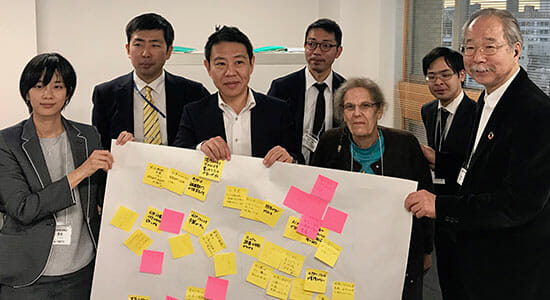
Advancing Sustainable Purchasing in Cities Globally
Cities worldwide are experiencing massive growth. As these cities grow, corresponding government purchasing needed to support its operations increases as well, leading to significant increases in carbon emissions. Government purchasing, or “public purchasing,” substantially contributes to carbon emissions as city government purchases have a carbon footprint 9x that of public buildings and vehicle fleets combined. Using an extensive international network, this GCSO-funded project will engage thousands of cities to implement sustainable public purchasing practices designed to mitigate carbon emissions and reduce spending.
2017
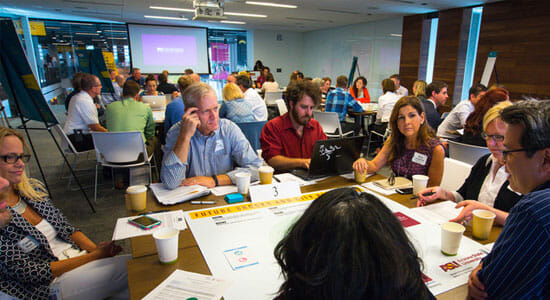
CapaCities: Building Sustainability Implementation Capacity in City Staff and Leadership
Municipalities are increasingly taking action against climate change and have a long history of tackling a host of environmental challenges. However, solutions to complex problems remain fragmented and piecemeal in the majority of the world’s cities, hindering their effectiveness and long-term success. In this pilot year, capacity-building trainings were organized in four cities across three countries (Germany, Mexico, and United States) to help city leadership unpack complex urban issues, anticipate threats and opportunities, strengthen inter-departmental collaboration, as well as coordinate investments and policy options to advance urban sustainability.
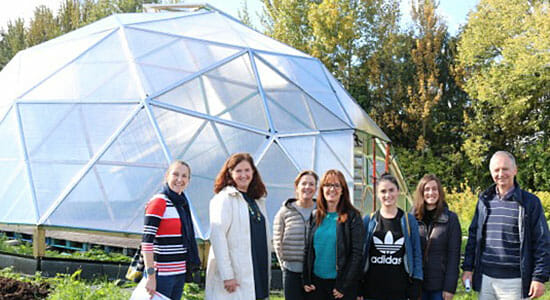
Sustainability Education: Continuing Professional Development for k12 School Teachers & Faculty
Primary and secondary schools are formative environments for building the capacity of individuals to create changes toward sustainability. Although professional development is an essential mechanism for enabling educators to understand and teach sustainability principles and practices, many programs are outdated and overly theoretical. In this pilot year, K-12 teachers participated in tangible and interactive Continuing Professional Development (CPD) workshops to increase their competence and confidence in teaching about sustainability to effectuate changes in education at all grade levels.

On- and Off-Campus Solutions: Sustainability Accelerator Program: Hot Water Reduction Project
Launched in early 2017, this project tested solutions to challenges related to climate change, water, and energy interactions within the built environment. Compelling evidence reveals that washing hands in hot water in all instances is unnecessary and does not significantly reduce bacteria. However, this remains a common practice in many cities worldwide. In this project, hot water was removed from university buildings in three GCSO locations and its resulting impact in energy savings and reduced carbon emissions were analyzed.